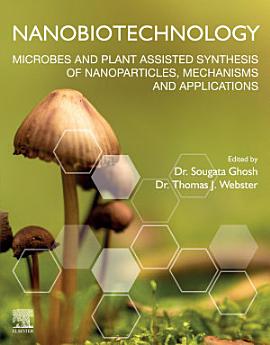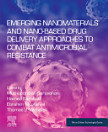Nanobiotechnology: Microbes and Plant Assisted Synthesis of Nanoparticles, Mechanisms and Applications
About this ebook
About the author
Dr. Sougata Ghosh is an Associate Professor in the Department of Microbiology at RK University, India, with a B.Sc., M.Sc., and Ph.D. in Microbiology from Savitribai Phule Pune University. He also serves as a Visiting Professor at Kasetsart University in Thailand and Northeastern University in the USA. Ghosh has led a DBT-funded Foldscope Research Project, filed seven patents, edited ten books, and authored 256 publications with 5,258 citations. He has spoken at numerous international conferences and reviews for 79 journals. A life member of the Association of Microbiologists of India, he has been recognized in Stanford's World Top 2% Scientists Ranking. His research focuses on nanobiotechnology, applied microbiology, and bioremediation.
Thomas J. Webster’s (H index: 107; Google Scholar) degrees are in chemical engineering from the University of Pittsburgh (B.S., 1995; USA) and in biomedical engineering from RPI (Ph.D., 2000; USA). He has served as a professor at Purdue (2000–2005), Brown (2005–2012), and Northeastern (2012–2021; serving as Chemical Engineering Department Chair from 2012–2019) Universities and has formed over a dozen companies who have numerous FDA approved medical products currently improving human health. He currently serves as a professor, biomedical engineering, Hebei University of Technology and Professor, Center for Biomaterials, Vellore Institute of Technology. Prof. Webster’s research explores the use of nanotechnology in numerous applications. Specifically, his research addresses the design, synthesis, and evaluation of nanophase materials (i.e., materials with fundamental length scales less than 100 nm) as more effective biomedical materials. He has directed numerous international centers in biomaterials and has graduated over 200 students with over 750 peer-reviewed publications. His research on nanomedicine has received attention in media including MSNBC, NBC Nightly News, PBS DragonFly TV, ABC Nightly News via the Ivanhoe Medical Breakthrough Segment, Fox News, the Weather Channel, NBC Today Show, NBC Nightly News, National Geographic TV series on the future of medicine, ABC Boston, Discovery Channel, and more. His work has been on display at the London and Boston Science Museums. He has helped to organize 27 conferences emphasizing nanotechnology in medicine and has organized over 83 symposia at numerous conferences emphasizing biological interactions with nanomaterials. Prof. Webster has received numerous honors including but not limited to: 2002, Biomedical Engineering Society Rita Schaffer Young Investigator Award; 2003, Outstanding Young Investigator Award Purdue University College of Engineering; 2005, American Association of Nanomedicine Young Investigator Award; 2005, Coulter Foundation Young Investigator Award; 2006, Fellow, American Association of Nanomedicine; 2010, Distinguished Lecturer in Nanomedicine, University of South Florida; 2011, Outstanding Leadership Award for the Biomedical Engineering Society (BMES); 2012, Fellow, American Institute for Medical and Biological Engineering (AIMBE, representing the top 2% of all medical and biological engineers); 2013, Fellow, Biomedical Engineering Society; 2014, Fellow, Ernst Strugmann; 2016, Fellow, College of Fellows of the International Union of Biomaterials Sciences and Engineering; 2016, Wenzhou 580 Award; 2016, Zeijiang 1000 Talent Program; 2016, SCOPUS Highly Cited Research (Top 1% Materials Science); 2016, Hsun Chinese Academy of Sciences Award; 2017, Fellow, National Associate of Inventors; 2017, Acta Biomaterialia Silver Award (given to researchers under the age of 45); 2019, Overseas Fellow, Royal Society for Medicine; 2020, World Top 2% Scientist by Citations (PLOS); 2020, SCOPUS Highly Cited Research (Top 1% Mixed Fields); and others.






